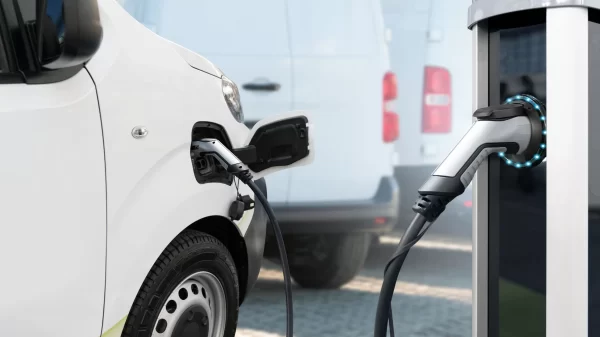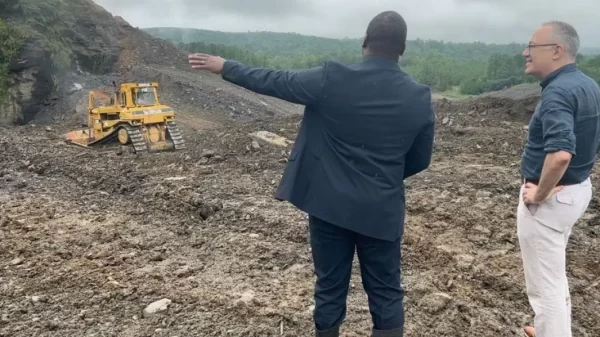While the spotlight on clean vehicles using our roadways seems currently to focus on electric and hybrid vehicles, there is another avenue where cleaner-burning alternative fuels are making a vast difference in lessening air pollution. Propane Autogas reduces nitrogen oxide pollution by up to 96 percent compared to ultra-low sulfur diesel engines.
Trucks, buses, vans and other fleet vehicles using Propane Autogas are saving operators money and helping the environment all across the nation. Propane is also typically 30 to 40 percent lower cost than petroleum-based fuels like gas and diesel. In Alabama, the use of Propane Autogas as a transportation fuel doubled in 2018 over 2017.
While reduction of air pollution is thought to be primarily a big-city issue, great advances have been made throughout the state with the use of, among other things, school bus fleets fueled by Propane Autogas. Our children, bus drivers and parents breathe cleaner air when school buses are fueled with Propane Autogas.
According to the Propane Educational and Research Council, the potential for lower maintenance costs is one reason behind propane’s popularity for use in light- and medium-duty vehicles, such as trucks and taxis, and for heavy-duty vehicles, such as school buses. Propane’s low carbon and low oil contamination characteristics may result in longer engine life.
Produced in the U.S., providing American jobs, Propane Autogas is an economical, safe and clean alternative transportation fuel that is powering many fleets in Alabama and across the nation.
Experts on this fuel will be in Montgomery on Oct. 10 for a free Propane “Autogas Answers” Workshop to tell their success stories and answer questions about cost savings and emissions reduction. The workshop will be from 8 a.m. until 1 p.m. at the Alabama Department of Agriculture and Industries and is sponsored, in part, by the Alabama Clean Fuels Coalition and the Propane Educational and Research Council.
The keynote speaker at the Propane “Autogas Answers” Workshop is John Barnett, U-Haul International propane program manager. Barnett is a member of the National Fire Prevention Association and National Propane Gas Association and is on the Safety and Technical Training Working Group for PERC, a leading body in the oversight of propane safety. U-Haul is the largest U.S retailer of propane. “I dedicate all of my time to selling, teaching, learning and promoting the propane industry,” Barnett said in a 2018 LP Gas Magazine interview.
Also presenting and answering questions at the event will be Sam Ham, the executive director of Fulton County (Ga.) Schools Transportation Department, who recently was instrumental in obtaining a $1.9 million grant from the United States Environmental Protection Agency to replace 85 diesel-powered buses with propane buses. The school system, with those additional buses, will have a fleet of 316 propane vehicles – with more to come!
Mark Denton, vice president of business development at Blossman Gas, will discuss Autogas infrastructure at the workshop. Blossman Gas is the nation’s largest family owned propane business in the nation.
Mary Blackmon from the Alabama Department of Economic and Community Affairs Energy Division will discuss the upcoming second round of funding from Alabama’s $25.5 million VW Settlement.
Leaders from the Mobile, Birmingham and Tuscaloosa school systems will be on hand at the workshop to share their real-world experiences with Propane Autogas fueled school buses.
Workshop attendees will learn about the cost savings and environmental benefits of propane fuel, to prepare a cost-saving analysis for vehicle fleets. In addition, they will learn how a propane fueling station can be economically placed on site and much more.
Mark Bentley is the Director of the Alabama Clean Fuels Coalition.
To register for the free event, which includes lunch, please visit https://tinyurl.com/y4pyoboc.
About the Alabama Clean Fuels Coalition:
Alabama Clean Fuels Coalition, a nonprofit membership-based organization, is the state’s principal coordinating point for alternative fuels and a member of the U.S. Department of Energy’s Clean Cities program. The promotion of clean, renewable, domestic energy sources helps reduce our dependence on foreign oil, improves local air quality and increases economic development opportunities in our local communities. For more information, please visit www.AlabamaCleanFuels.org or call 205-402-2755.




















































